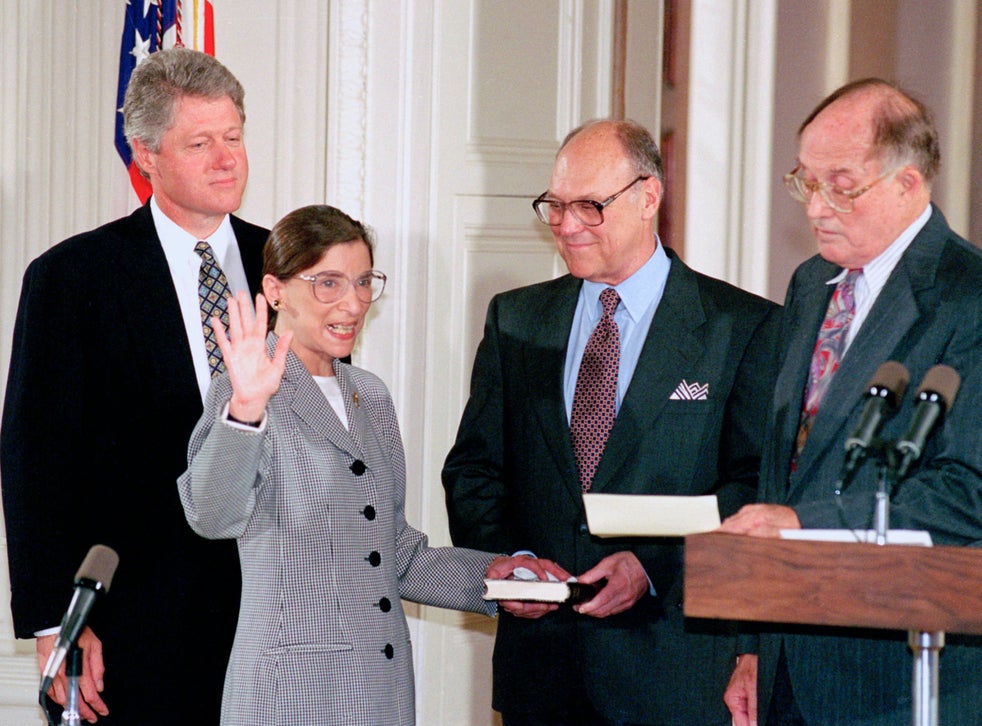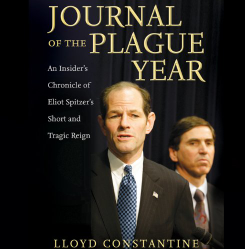As with Black History Month (See HL 68) this blog/newsletter celebrates and commemorates idiosyncratically, with personal experiences deeply affected or related to that and those honored. But on this day when she is laid to rest, we say first that the passing of Justice Ruth Bader Ginsburg hit us harder than any public figure’s save JFK’s and MLK’s. In that respect we believe our reaction was communal and not atypical.

Ruth Bader Ginsburg
She was typical, coming from a New York City neighborhood like ours, a striving and driven Jewish kid of that time. She was educated in the City’s then extraordinarily excellent public schools. Hers in Brooklyn, where both of HL’s parents attended public school and dad taught and coached at Lincoln, a rival to Ruth’s Madison.
When HL started law school she was already a legend at the one we both graduated from, but she attended only her last year. And that was the story told – she had left Harvard’s Law Review, joined Columbia’s and finished tied for first in her class. Tied with Dick Givens, a friend of ours who said they had not invented a timer accurate enough to measure the interval between a professor’s question and Ginsburg’s raised hand. She joined our law school’s faculty the fall after we graduated, but was there when HL went back to audit a few courses he had taken but paid little attention to while matriculated. We were briefly introduced to Ginsburg by a sainted con law professor Louis Henkin.

Janet Benshoof
As a young civil rights/liberties lawyer in the Legal Services program, HL constantly borrowed and adopted strategies and arguments she was using in cases brought by the ACLU’s Women’s Rights Project that she had founded and headed. When Janet Benshoof, a legal services officemate and friend left to head the ACLU’s Reproductive Freedom Project and argue three abortion cases in SCOTUS, she closely coordinated with Ginsburg and her intimately related ACLU shop. Visiting Janet there, we were reintroduced to Ginsburg.
A decade later Ginsburg’s advocacy sealed and doomed the fate of our first merits case in SCOTUS. It’s hard for a civilian to understand how much work a litigator devotes to a merits brief for the High Court, especially one they have to get up and defend before the justices. You not only learn the salient points but the minutiae about every case cited in your and the opponents’ briefs. The biggest precedent we had to overcome was one styled Craig v. Boren. There the Court had made new law accepting Ginsburg’s argument that the right to and value of gender equality trumped the state’s virtually complete constitutional power to regulate the sale and consumption of alcohol. Oklahoma had given women the right to drink at an earlier age than men and employing her signature strategy Ginsburg had the law ruled unconstitutional. Generally representing men in the rare situations where law discriminated against them paved the way to eliminating the much greater number of laws and constructs that discriminated against women and girls. We were defending the alcohol control laws of 38 states against a commerce clause challenge but Craig and its Ginsburg – designed rationale knocked the legs out from our argument, that the states’ power in this area was total. We got three dissents but her advocacy had doomed ours.

Bruce Babbitt
The next time we thought hard about Ginsburg was in 1993 when President Clinton nominated her to fill the seat vacated by Justice Byron “Whizzer” White. She wasn’t Clinton’s first choice nor ours. Her nomination exemplified a major, pervasive and continuing failure by Democrats in power to do what they want to do and win, but instead to do what Republicans will grouse about but in truth find acceptable and comforting. The nomination of moderately left Ginsburg instead of Bruce Babbitt, left of her and Clinton’s real preference was typical of many such pulled and withdrawn punches by Clinton and later President Obama. Think Merrick Garland instead of Sri Srinivasan and dropping the public option from Obamacare among many, many more. But in nominating his second and in truth third choice (Steve Breyer the actual number two badly flubbed his interview) Clinton inadvertently did a great thing, because RBG grew astoundingly during her 27 years on the SCOTUS bench.
Yet Ginsburg remained a moderate and the type of Democrat who was unduly concerned with getting along with some scumbag-brothers on the High Court bench. Her close friendship with blatant homophobe Antonin Scalia was innocuous enough and explained by their mutual love of grand opera, but at times it proved extremely harmful.
 Jeffrey Toobin’s The Nine describes how Ginsburg was bullied by Scalia out of the wording she had drafted for her dissent in Bush v. Gore – and this from a jurist so often lionized as a, if not the, “great dissenter.” Given her greatness and the tragic timing and consequences of her passing it is inconvenient to note two things she did that actually helped Donald Trump’s assault on the courts and constitution. Her comments that Trump’s election would have moved her beloved and deceased husband Marty – to want to move to New Zealand made Donald’s day. And her criticism of athletes like Colin Kaepernick for taking the knee to protest racial injustice, calling such actions “dumb” “stupid” and “disrespectful” showed she was human and willing to say something that many moderates and even mild lefties think but are afraid to. Given her position on the court and the possibility that protest cases might come before it and her, she should not have said it. Her criticisms of Trump and Kaepernick formed the basis of an opening hypothetical for a First Amendment course we taught at SUNY and Williams.
Jeffrey Toobin’s The Nine describes how Ginsburg was bullied by Scalia out of the wording she had drafted for her dissent in Bush v. Gore – and this from a jurist so often lionized as a, if not the, “great dissenter.” Given her greatness and the tragic timing and consequences of her passing it is inconvenient to note two things she did that actually helped Donald Trump’s assault on the courts and constitution. Her comments that Trump’s election would have moved her beloved and deceased husband Marty – to want to move to New Zealand made Donald’s day. And her criticism of athletes like Colin Kaepernick for taking the knee to protest racial injustice, calling such actions “dumb” “stupid” and “disrespectful” showed she was human and willing to say something that many moderates and even mild lefties think but are afraid to. Given her position on the court and the possibility that protest cases might come before it and her, she should not have said it. Her criticisms of Trump and Kaepernick formed the basis of an opening hypothetical for a First Amendment course we taught at SUNY and Williams.
The final reflection here is about her strength and bravery, in doing her job to the last second while battling a fourth and possibly fifth round of cancer. We are not among those who say she should have resigned to allow Obama to appoint her successor. Given his mishandling of the Scalia vacancy and the intransigence of the Republicans who know how to win when they have the votes, she did the thing that her record of service justified and her conscience dictated. And when she closed her eyes we think that conscience must have been perfectly clear. RIP RBG. As we Jews say: you are of blessed memory.



0 Comments